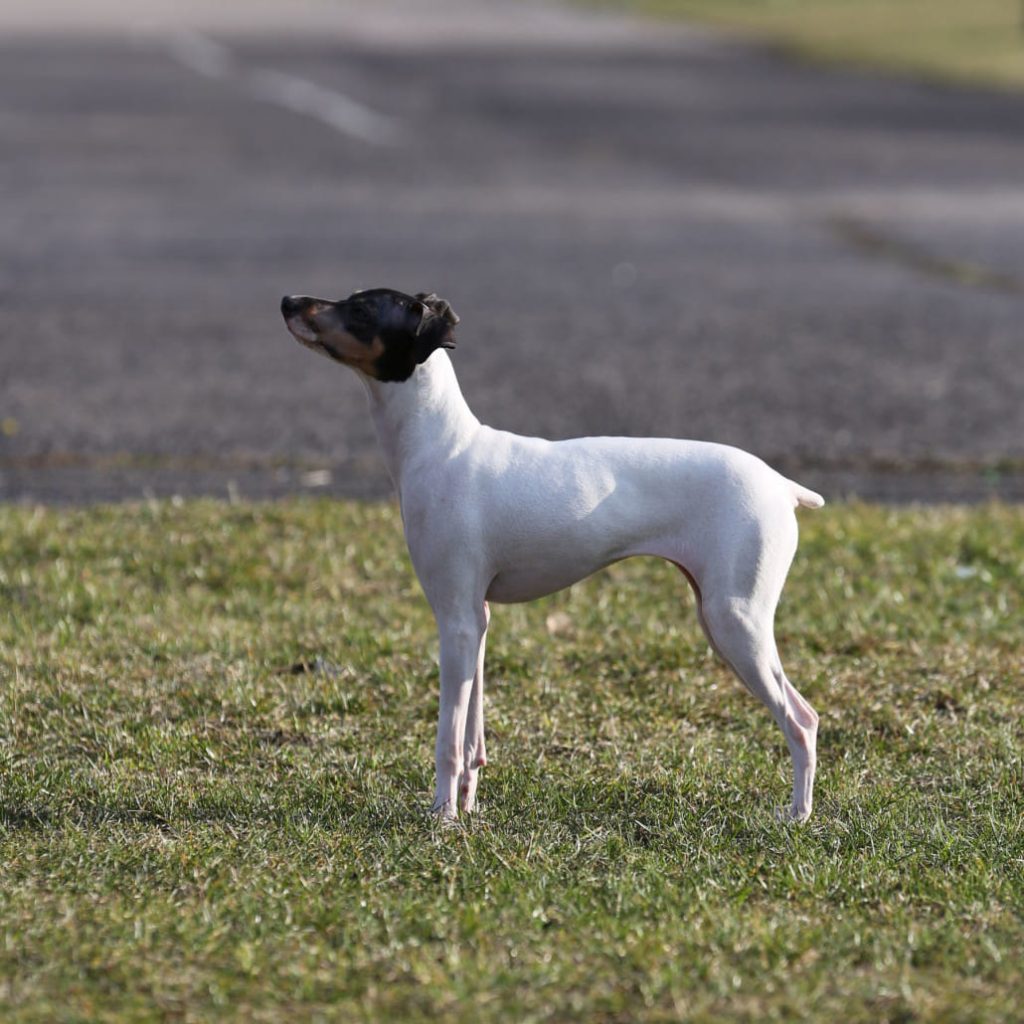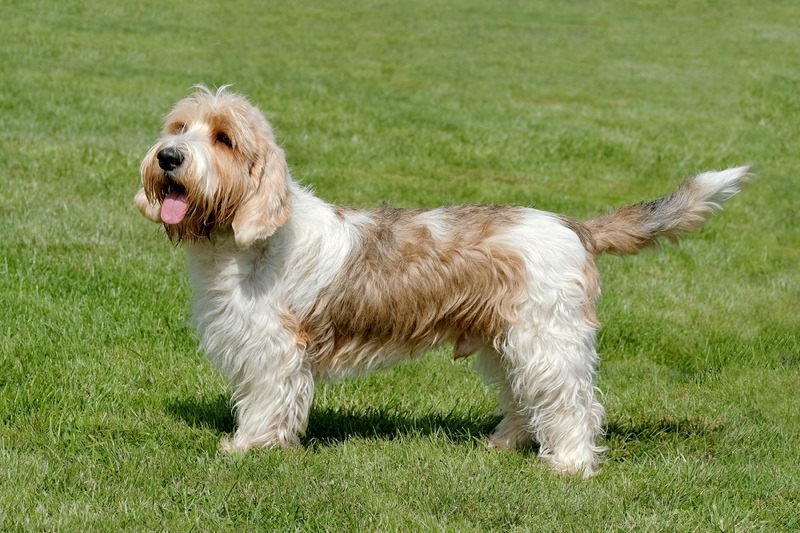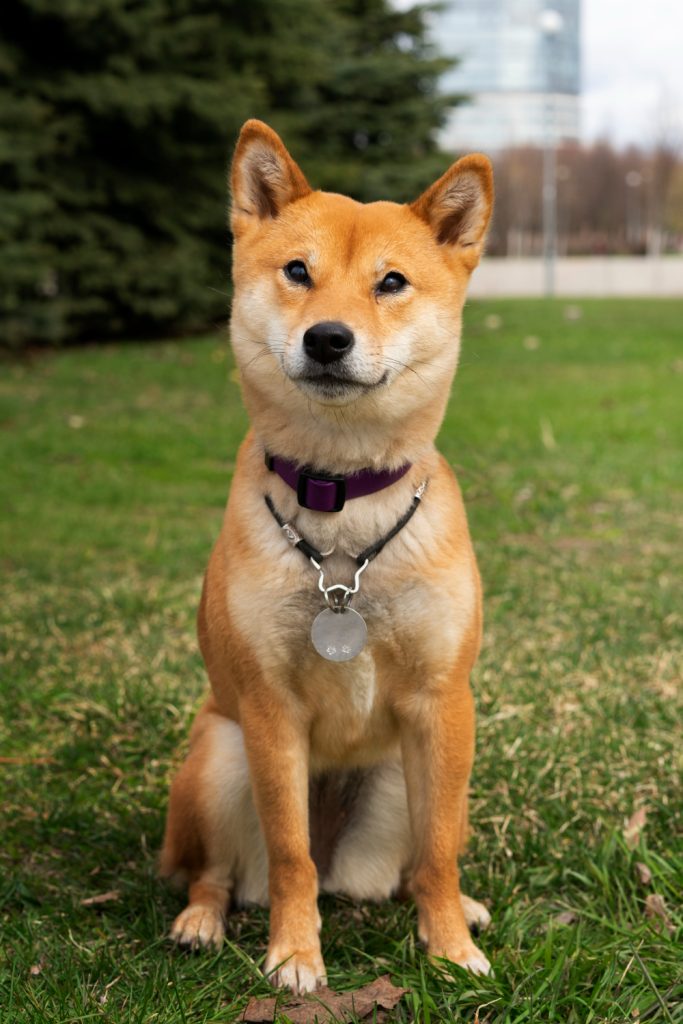Introduction: A Lively and Loyal Companion
The Japanese Terrier is a small but spirited breed originating from Japan, where it is often admired for its lively personality and loyal demeanor. Also known as the Nippon Terrier, this rare breed has a history that spans centuries. Despite its small size, the Japanese Terrier packs a big personality, characterized by its energy, intelligence, and strong bond with its owners. This breed is especially well-suited for active individuals or families seeking an affectionate yet playful companion.
Due to their compact size and short coat, Japanese Terriers adapt well to various living situations, including apartment life, as long as their exercise needs are met. However, their independent nature and energetic disposition mean that they thrive in homes where they receive regular mental stimulation and physical activity.
Quick Facts Summary
- Group: Toy/Terrier
- Height: 8-13 inches (20-33 cm)
- Weight: 4-9 pounds (2-4 kg)
- Coat Type and Colors: Short, smooth coat; predominantly white with black or tan markings on the head.
- Lifespan: 12-15 years
- Temperament: Friendly, energetic, loyal, intelligent, and affectionate.
- Hypoallergenic: No
- Origin: Japan
Origin and History: The Legacy of the Japanese Terrier
The Japanese Terrier, also known as the Nippon Terrier, has its roots in the 17th century when smooth-coated Fox Terriers were brought to Japan by Dutch traders. These Fox Terriers were crossbred with small local dogs, resulting in the Japanese Terrier we know today. This breed was primarily developed in the port city of Nagasaki, where it became popular among Japanese nobility and wealthy merchants.
The breed was originally used for hunting small game and as a companion dog, and its lively, alert nature made it an excellent watchdog. Despite its historical significance in Japan, the Japanese Terrier remains a rare breed, even in its native country. The Japanese Kennel Club officially recognized the breed in 1930, but it has yet to gain widespread popularity outside Japan.
Physical Traits and Appearance
Size and Build
The Japanese Terrier is a small, compact breed, standing between 8 to 13 inches tall and weighing between 4 to 9 pounds. Despite their small stature, they possess a strong and muscular build that reflects their terrier heritage. They have a sleek and agile appearance, with a lean body and long, elegant legs that allow them to move quickly and with agility.
Coat and Colors
Their coat is short, smooth, and fine, making grooming relatively easy. The most common color pattern is predominantly white with black or tan markings on the head. This distinctive coat gives the Japanese Terrier a striking appearance, which further highlights their unique charm. While their coat is low-maintenance, the breed does shed moderately, so regular brushing is recommended to keep their coat looking shiny and healthy.
Distinctive Features
Japanese Terriers have a distinctive, refined appearance with a narrow head, long muzzle, and dark, almond-shaped eyes that give them a keen, alert expression. Their ears are set high and typically fold over, though some individuals may have ears that stand erect. The breed’s tail is typically short, either naturally or docked, adding to their sleek and tidy appearance.
Temperament and Behavior: Playful and Devoted
Personality Traits
Japanese Terriers are known for their lively, energetic, and affectionate personalities. They are friendly dogs who form strong bonds with their families, often following their owners from room to room and seeking companionship. Despite their small size, they are courageous and confident, often acting as alert watchdogs who will not hesitate to bark if they sense something unusual.
They have a playful side, making them excellent companions for children and other pets when properly socialized. However, their terrier instincts may make them a bit independent at times, so early training and consistent boundaries are important to keep their spirited nature in check.
Interaction with Children, Pets, and Strangers
Japanese Terriers tend to be friendly with children, particularly when raised with them. They are small enough to play safely with kids but energetic enough to keep up with their antics. That said, interactions between very young children and this breed should be supervised to prevent accidental injury.
With other pets, especially dogs, Japanese Terriers are generally sociable, though they may show dominance around unfamiliar animals due to their terrier instincts. Early socialization is key to ensuring they are well-mannered in multi-pet households.
When it comes to strangers, Japanese Terriers can be initially reserved but usually warm up once they determine that the newcomer poses no threat. They are naturally alert and may bark to announce the arrival of strangers, which makes them excellent watchdogs.
Trainability and Intelligence
Japanese Terriers are highly intelligent and quick learners. They respond well to positive reinforcement, particularly when training is consistent and engaging. However, like many terriers, they can be somewhat stubborn, so it’s important to maintain a firm but gentle approach. Training sessions should be kept fun and varied to hold their attention.
Basic obedience training, along with mental stimulation through puzzle toys or interactive games, will help keep them mentally sharp and less prone to undesirable behaviors like excessive barking or digging.
Health and Wellness: A Generally Robust Breed
Common Health Issues
Japanese Terriers are generally healthy, but like all breeds, they can be prone to certain health issues. Some of the most common conditions that affect this breed include:
- Patellar Luxation: This is a condition where the kneecap dislocates, which is common in small breeds. Regular check-ups and maintaining a healthy weight can help mitigate the risk.
- Dental Problems: Due to their small size, Japanese Terriers are prone to dental issues, such as plaque buildup and gum disease. Regular teeth cleaning is essential.
- Skin Sensitivity: Their short coat can make them more susceptible to skin irritations, especially in extreme weather conditions. Moisturizing shampoos and protective clothing during cold weather can help.
Health Checks and Screenings
Regular veterinary check-ups are crucial for ensuring the long-term health of your Japanese Terrier. It’s recommended to schedule routine dental cleanings, and screenings for common genetic conditions like patellar luxation should be done early. Additionally, regular grooming and monitoring of their skin for any signs of irritation will help keep your dog healthy and comfortable.
Diet and Nutrition
Japanese Terriers do well on high-quality dog food that is appropriate for their size and activity level. A balanced diet with sufficient protein, healthy fats, and vitamins is essential to support their active lifestyle. Portion control is important, as overeating can lead to obesity, which can exacerbate joint issues like patellar luxation. Always ensure your dog has access to fresh water, and avoid overfeeding them treats.
Grooming and Maintenance
Coat Care
The Japanese Terrier’s short, smooth coat is relatively low-maintenance. Weekly brushing with a soft brush will help keep their coat shiny and free of loose hair. They do not require frequent baths, but an occasional bath with a mild dog shampoo will help keep their coat clean and their skin healthy.
Skin, Ear, Eye, and Dental Care
Due to their short coat, Japanese Terriers can be more prone to skin irritations, especially in harsh weather conditions. It’s important to monitor their skin for signs of dryness or irritation, especially after walks or outdoor activities. Regular ear cleaning and eye checks should also be part of their grooming routine to prevent infections.
Dental care is crucial for this breed, as small dogs are more prone to dental problems. Daily brushing with dog-safe toothpaste and regular veterinary cleanings will help prevent plaque buildup and gum disease.
Exercise and Activity Requirements
Exercise Needs
Despite their small size, Japanese Terriers are energetic dogs that require regular exercise to stay happy and healthy. They need at least 30 to 60 minutes of physical activity per day, including walks, playtime, and interactive games like fetch or agility training. Without sufficient exercise, they may become bored and exhibit undesirable behaviors such as excessive barking or digging.
Mental Stimulation
In addition to physical exercise, Japanese Terriers need mental stimulation to keep their intelligent minds engaged. Puzzle toys, training exercises, and interactive play are excellent ways to provide them with the mental stimulation they crave. This will not only help prevent boredom but also strengthen the bond between you and your dog.
Lifestyle Compatibility: A Perfect Fit for Many Households

Living Conditions
Thanks to their small size and adaptable nature, Japanese Terriers are well-suited to a variety of living environments. They can thrive in apartments as long as their exercise needs are met, but they also enjoy having access to a yard where they can run and play. However, due to their short coat, they are sensitive to extreme weather, particularly cold temperatures. It’s important to provide them with warm clothing during the colder months and ensure they have a cool, shaded area during hot weather.
Compatibility with Different Lifestyles
Japanese Terriers make excellent companions for individuals and families alike. They are well-suited for active households where they can engage in regular exercise and play, but they also have a cuddly side, making them great lap dogs for those who enjoy a quieter lifestyle. Their adaptable nature makes them a good fit for both singles and families with children, provided they receive the attention and stimulation they need.
Adoption, Buying, and Ethical Considerations
Finding a Reputable Breeder or Rescue
If you’re considering adding a Japanese Terrier to your family, it’s important to find a reputable breeder who follows ethical breeding practices. Responsible breeders will health-test their dogs for common genetic conditions and provide you with the necessary documentation. Be cautious of breeders who prioritize profit over the health and well-being of their dogs, as these are often signs of puppy mills.
Alternatively, adopting from a rescue organization is a wonderful way to provide a home to a dog in need. Although the Japanese Terrier is a rare breed, it’s still worth checking breed-specific rescue groups or general animal shelters.
Puppy Mills and Scams
When looking for a Japanese Terrier, be wary of online ads and breeders offering puppies at unusually low prices. Puppy mills often operate under the guise of legitimate breeders, but they tend to raise dogs in poor conditions, leading to a host of health and behavioral problems. Always ask to visit the breeder in person, meet the puppy’s parents, and verify their health clearances.
Pros and Cons of Owning a Japanese Terrier
Pros:
- Loyal and Affectionate: Japanese Terriers form strong bonds with their owners, making them incredibly loyal and loving companions. They enjoy spending time with their families and often follow their owners around the house.
- Highly Trainable: Thanks to their intelligence and eagerness to please, Japanese Terriers are highly trainable and excel in obedience training. They enjoy learning new tricks and commands, especially when positive reinforcement is used.
- Low Grooming Needs: With their short, smooth coat, Japanese Terriers require minimal grooming. Regular brushing and the occasional bath are all that’s needed to keep them looking their best.
- Adaptable to Apartment Living: Their small size and relatively low exercise needs make Japanese Terriers well-suited to apartment living, provided they receive regular walks and playtime.
- Great Watchdogs: Japanese Terriers are naturally alert and will quickly alert their owners to any potential intruders, making them excellent watchdogs despite their small size.
Cons:
- Can Be Stubborn: Like many terriers, Japanese Terriers can have a stubborn streak. While they are intelligent and capable of learning quickly, they may require patience and consistent training to overcome their independent nature.
- Prone to Separation Anxiety: Due to their strong attachment to their owners, Japanese Terriers can be prone to separation anxiety when left alone for extended periods. They may bark excessively or engage in destructive behaviors if they become anxious.
- Sensitive to Cold Weather: With their short coat, Japanese Terriers are not well-suited to cold climates. Owners should provide them with sweaters or jackets during chilly weather and limit their exposure to the cold.
- Can Be Reserved with Strangers: Although they are affectionate with their families, Japanese Terriers can be initially reserved around strangers. Early socialization is key to ensuring they are well-mannered in public.
Similar Breeds: Other Terriers to Consider
If you’re drawn to the Japanese Terrier’s personality and traits but are considering other breeds, you may want to explore the following options:
- Fox Terrier: Similar in size and temperament, the Fox Terrier shares the Japanese Terrier’s energetic and bold personality. They are also intelligent and highly trainable.
- Toy Fox Terrier: A smaller version of the Fox Terrier, the Toy Fox Terrier is another great choice for those looking for a compact, lively companion.
- Rat Terrier: The Rat Terrier is another small but energetic breed known for its hunting abilities and loyal nature.
Conclusion: A Unique and Loving Companion
The Japanese Terrier is a rare and special breed that offers a unique blend of affection, intelligence, and energy. Their lively personalities and strong bonds with their owners make them excellent companions for individuals and families alike. While they may require regular exercise and consistent training, their loyalty and affectionate nature make the effort worthwhile.
Whether you’re looking for a playful partner for outdoor adventures or a cuddly lap dog to relax with at home, the Japanese Terrier is a versatile and adaptable breed that can bring joy and companionship to any household. With proper care, socialization, and love, these small but mighty dogs will thrive in a variety of living environments, making them a delightful addition to any family.




